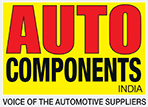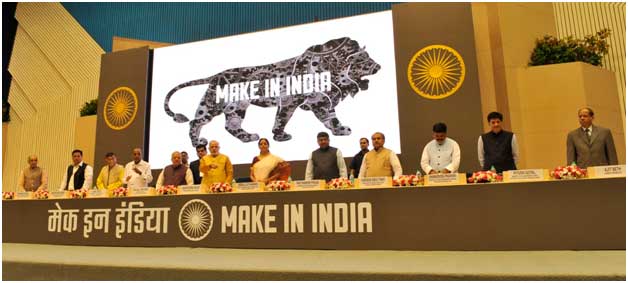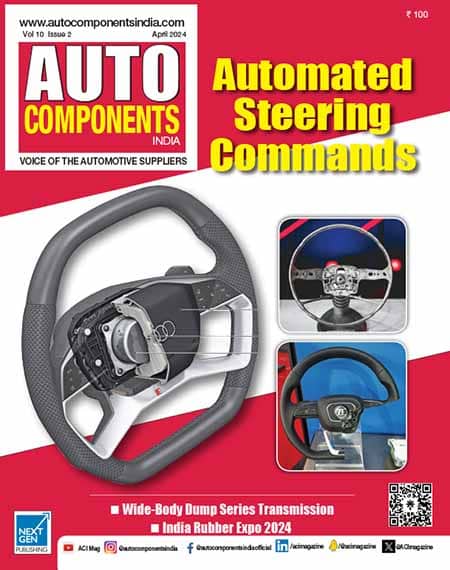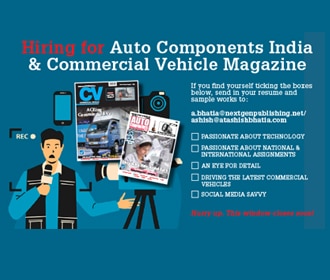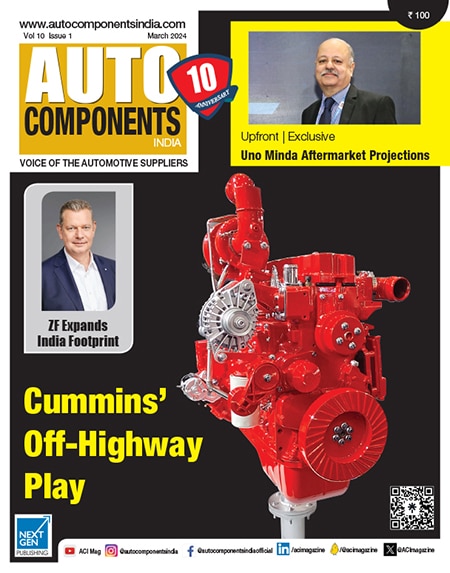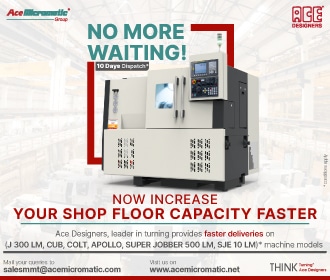The Covid-19 pandemic has thrown in a new set of challenges for the ‘Make in India’ national program. On the brighter side, it has also given birth to a whole new set of opportunities.
Story by: Ashish Bhatia
Under the ‘Make in India’ national program, the Government of India aspires to facilitate investment, foster innovation, enhance skill development and build best-in-class manufacturing infrastructure. However, these aspirations were briefly jolted with the Covid-19 pandemic reaching our shores. The pandemic brought with it a whole new set of disruptions and required the country like the rest of the world to take a step back instead of a step forward. It forced a hard reboot! Some feared the worse and some were quick to call it nature’s trick to heal itself. In words of the Prime Minister, it was encouraging to see most workplaces try to riggle out with a majority taking the digital-first approach. This changed the contours of the professional approach. Digital was readily adopted by the auto components and allied industries in the country as they continue to exert all their might to keep the wheels of the economy rolling and making the best of the resources at hand under the dire circumstances. While the need for strict compliance to lockdown measures has made it challenging, the efforts of the industry send out a strong wave of optimism for a gradual but strong revival. Opined Prime Minister Narendra Modi, “With the world in pursuit of new business models, India, a youthful nation known for its innovative zeal can take the lead.” “Technology demolishes bureaucratic hierarchies, eliminates middlemen and accelerates welfare measures,” he added.
The new normal
The need of the hour is to think of business models that are easily adaptable. For instance, embracing digital payments is a prime example of adaptability. MSMEs big and small should invest in digital tools to keep commerce connected if they haven’t already, especially in times of crisis. India, it is claimed, is already witnessing an encouraging surge in digital transactions. The need of the hour is perhaps to also reimagine what we refer to as being efficient. According to the Prime Minister, the need of the hour is to perhaps think of models where productivity and efficiency matter more than the appearance of effort. The emphasis should be on completing a task in a specified time frame. Business models ought to attach primacy to the poor. Sustainable business practices will take centre stage more than ever before. “There is a significant future in developing technologies and practices that reduce our impact on the planet. Do more with less,” he reiterated.
It is time to evaluate new opportunities and growth areas that would emerge now. Rather than playing catch up, India must strive to be ahead of the curve in the post-Covid era. The next big ideas from India should find global relevance and application. They should have the ability to drive a positive change not merely for India but for the entire mankind. Drawing attention to logistics erstwhile equated to physical infrastructure – roads, warehouses, ports, the Prime Minister cited global supply chains being controlled digitally. Advocating using the right blend of the physical and the virtual, to emerge as the global nerve centre of complex modern multinational supply chains in the post-Covid-19 world, he called for the stakeholders to rise to the occasion and seize this opportunity. Responding to the suggestions, averred Ritu Hunjan, Founder and Chief Executive Officer, Rebataur, “Every crisis make us stronger in becoming self-sufficient and effective in combating it.” Hunjan suggested the formation of a small incubation cell with funding especially to foster India centric ideas. “This hub can bring the best minds and talent from across the country with the profit-sharing mantra from each transaction in the value chain,” she added. Responding on the suggestions to utilise CSR funds, Sudipta Mitra, Policy Innovation Advisor at Carnegie Mellon University said, “CSR funds could be used for upskilling the unskilled /semi-skilled population and in turn help create a relevant talent pool.”
Promoting ‘Make in India’
Among recent measures by the government to promote ‘Make in India’, prior to the pandemic, were the changes in customs duty announced in the Union Budget 2020-21. For instance, under the changes announced in customs duty to promote initiatives under the Phased Manufacturing Programme (PMP) for Electric Vehicles (EVs), Semi Knocked Down (SKD) units of bus, trucks and two-wheelers with effect from April 01, 2020, were to be hiked from 15 per cent to 25 per cent. Semi Knocked Down (SKD) units of passenger vehicles and three-wheelers were to be hiked from 15 per cent to 30 per cent. Completely Knocked Down (CKD) units of passenger vehicles, three-wheelers, two-wheelers, bus and trucks were to be hiked from 10 per cent to 15 per cent. Changes in customs duty to promote initiatives electronics included the hike in duty for motors like single-phase AC motors, stepper motors and wiper motors from 7.5 per cent to 10 per cent. Polyester Liquid Crystal Polymers for use in the manufacture of connectors was to be completely exempted from the existing duty rate of 7.5 per cent.
Announcements on the customs duty on raw materials and inputs imported by domestic manufacturers included a hike in the duty of catalytic converter from 10 per cent to 15 per cent. Duty of noble metal solutions and noble metal compounds used in the manufacture of the catalytic converter and its parts from five per cent to 10 per cent including revision of duty on platinum or palladium used in the manufacturing of catalytic converter and its parts from five per cent to applicable rate. Parts and other specified inputs for the manufacture of catalytic converters were hiked from five per cent to 7.5 per cent. Completely Built Units (CBUs) of commercial vehicles (other than electric vehicles) were hiked from 30 per cent to 40 per cent. The budget outlay of 2020-21 for Faster Adoption and Manufacturing of (Hybrid and) Electric Vehicle in India was set at 693 crores as against 500 crores in the previous year. Promotion of Electronics and IT HW Manufacturing (MSIPS, EDF and Manufacturing Clusters) was allocated a sum of 980 crores from 690 crores the previous year.
Foreseeable Future
 Experts have already got down to projecting likely future scenarios for the automotive industry. According to a Frost & Sullivan analysis, it will be crucial to answering a few questions before the progress of the national program moves beyond the roadblocks in the near to medium term. As per the study, it could take anywhere between two to four quarters for the stakeholders of the industry to come out of the recessionary period. Revealing two scenarios of the pandemic from a claimed ongoing analysis of realtime data: severe pandemic and global emergency with outcomes ranging from gradual recovery to a recession, the firm expects annual lightweight production globally to decline by 21 per cent before subsequently picking up pace in 2021 and finally overhauling 2019 levels by 2023. In the case of the global emergency scenario, production slowdowns, high unemployment and plummeting demand could pose severe hurdles according to Sarwant Singh, Managing Partner, Frost & Sullivan. Singh is known to have opined that digital strategies are being forcibly shoehorned into the traditional supply chains. He expects the mobility industry to hurtle into a recessionary environment where it could possibly overtake the 2019 levels only by 2024-2025. In case of a severe pandemic, Singh foresees persistent bottlenecks to prevent manufacturing plants from realising full capacity utilisation in the near-term. Over the long-term, high-growth digital platforms, in-car connectivity services and in-vehicle HWW offerings, stepping up factory automation and Industry 4.0 could form the cornerstone of ‘Make in India’ oriented strategic plans. ACI
Experts have already got down to projecting likely future scenarios for the automotive industry. According to a Frost & Sullivan analysis, it will be crucial to answering a few questions before the progress of the national program moves beyond the roadblocks in the near to medium term. As per the study, it could take anywhere between two to four quarters for the stakeholders of the industry to come out of the recessionary period. Revealing two scenarios of the pandemic from a claimed ongoing analysis of realtime data: severe pandemic and global emergency with outcomes ranging from gradual recovery to a recession, the firm expects annual lightweight production globally to decline by 21 per cent before subsequently picking up pace in 2021 and finally overhauling 2019 levels by 2023. In the case of the global emergency scenario, production slowdowns, high unemployment and plummeting demand could pose severe hurdles according to Sarwant Singh, Managing Partner, Frost & Sullivan. Singh is known to have opined that digital strategies are being forcibly shoehorned into the traditional supply chains. He expects the mobility industry to hurtle into a recessionary environment where it could possibly overtake the 2019 levels only by 2024-2025. In case of a severe pandemic, Singh foresees persistent bottlenecks to prevent manufacturing plants from realising full capacity utilisation in the near-term. Over the long-term, high-growth digital platforms, in-car connectivity services and in-vehicle HWW offerings, stepping up factory automation and Industry 4.0 could form the cornerstone of ‘Make in India’ oriented strategic plans. ACI
Also Read : https://autocomponentsindia.com/coronavirus-time-to-unleash-the-potential-for-auto-components-sector/
